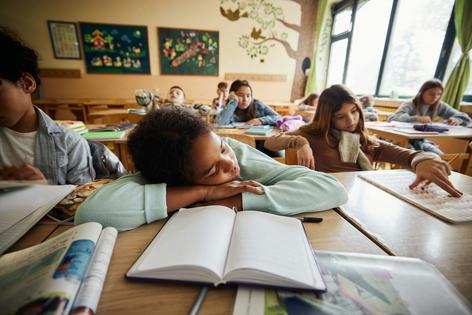Getting a good night’s rest is vital for neurodiverse children – pediatric sleep experts explain why
Published in Health & Fitness
Most of us are all too familiar with the consequences of a poor night’s sleep – be it interrupted sleep or simply too little of it. If you’re a parent with kids at home, it often leaves you and your children on edge.
Children with neurodiverse conditions, such as autism and attention-deficit/hyperactivity disorder, or ADHD, are even more susceptible to the effects of poor sleep, given their emotional reactivity and impulsivity.. Struggles with sleep have been linked to increased aggression, irritability, inattention and hyperactivity in children with autism spectrum disorder.
We are three sleep experts – a neurology physician with expertise in pediatrics, a psychologist and a pediatric nurse practitioner – who are working together to help neurodiverse kids, including those on the autism spectrum, get better sleep. Two of us wrote a 2014 book for parents on the topic.
We are passionate about improving sleep because it’s an opportunity to help neurodiverse kids and their families both at night and throughout the day to improve how they function in the world.
There are multiple reasons why neurodiverse children don’t sleep well, including medical conditions, biological causes and behavioral and environmental factors.
Medical conditions, such as obstructive sleep apnea or epilepsy, can affect a child’s sleep. Medications that are used to treat medical conditions, such as antidepressants for mood disorders or stimulants for ADHD, can further disrupt sleep.
Biological causes include genes that affect sleep and issues with processing brain chemicals, such as melatonin.
Behavioral and environmental factors, including the common culprits of increased caffeine, too much screen time and too little physical activity, or any combination of these, can also affect sleep.
Neurodiverse children often struggle with understanding what’s expected of them at bedtime and have difficulty transitioning from after-dinner activities to bedtime routines. They also describe having trouble “turning off their brains” when it’s time to go to sleep.
All of these factors can be addressed and treated. A thorough evaluation by the child’s health care provider may reveal a medical cause, or medication, that is interfering with sleep.
...continued








Comments